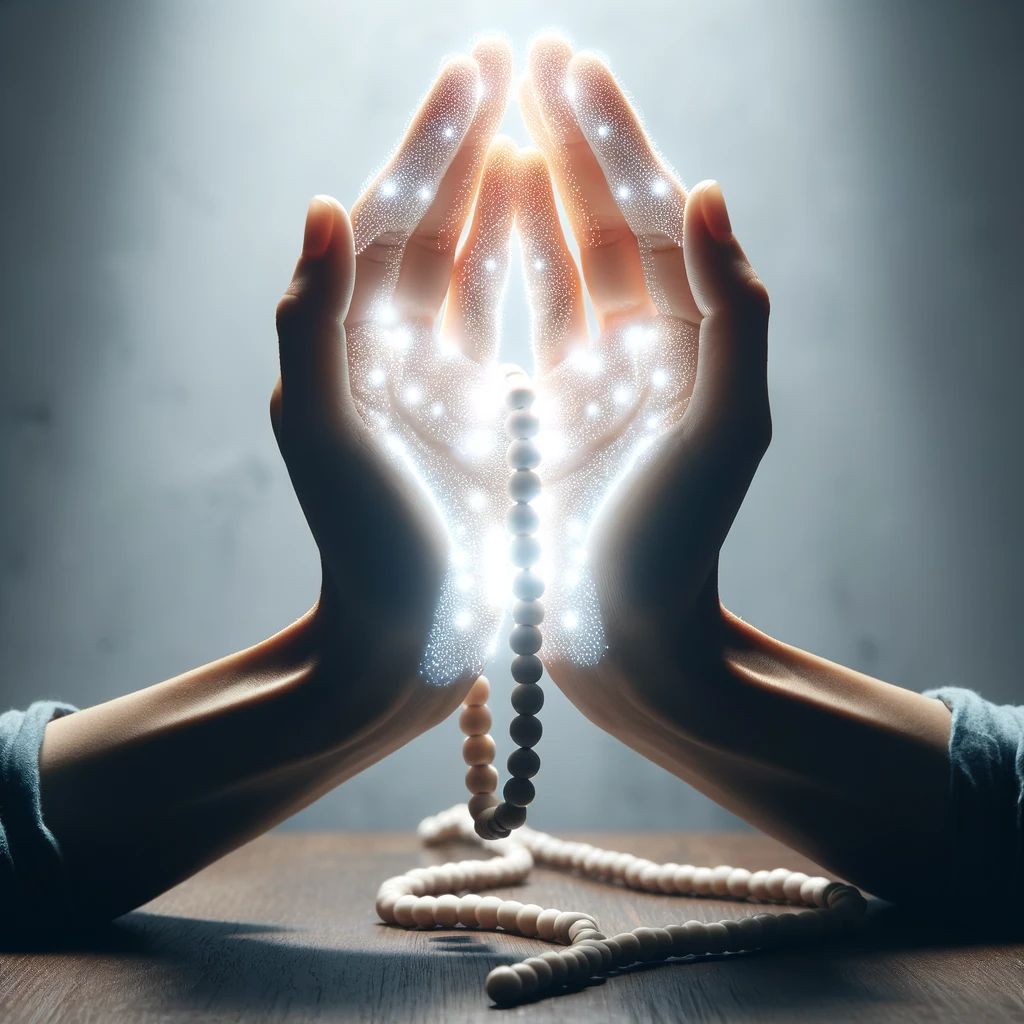Exploring the Divine Connection Across World Religions: A Journey of Spiritual Unity and Interfaith Dialogue
Show Notes
Join us on Luminous Conversations for a thought-provoking journey through the landscape of spirituality as we explore the concept of imminent divinity across various religious traditions. Together with my guest, Tori Lancaster, we unravel the intricate tapestry of Hinduism, Christianity, Buddhism, and the Ba'á'í Faith. Listen in as we discuss Hinduism's non-dualistic belief in Brahman and Atman, and how this shapes a life of compassion and interconnectedness. Tori's philosophical insight enriches our conversation, challenging Western notions of individualism and offering a fresh perspective on self and consciousness.
Venturing further, our dialogue draws parallels between the intimacy of the Holy Spirit in Christian life and the universal consciousness in Eastern traditions. We examine the Tao's natural order and the profound stillness within Quakerism, considering the impact on ethical behavior and community relations. Discover how the inner light of Quaker beliefs and the Buddha-nature in Buddhism democratize spiritual awakening and promote a mindful, compassionate existence. The unique perspectives in this conversation illuminate the common threads of personal divine connection across these diverse belief systems.
Concluding our spiritual expedition, we delve into the philosophical implications of the Ba'á'í Faith's teachings on the unity of all religions and the oneness of humanity. Reflect with us on how the interconnectedness of major faiths and the advocacy for social justice and global peace position religion as a potential unifying force. Through our discourse, we underscore the importance of interfaith dialogue and the universal longing for spiritual connection that transcends cultural and religious boundaries. Tune in to this enriching episode that promises to broaden your horizons and deepen your understanding of the divine within and among us.
Time Stamps
(00:00) Imminent Divinity in Different Religions
This chapter we explore the concept of imminent divinity in Hinduism and contrast it with Western religious thought. I discuss the Hindu understanding of Brahman as the universal consciousness and Atman as the individual soul, emphasizing the non-dualistic nature of this belief system where the individual and the universe are seen as one. Tori Langcaster joins me to examine how this perspective influences Hindu practices and daily life, leading to a life of compassion and empathy. We consider the philosophical implications of this non-dualistic view, particularly how it challenges Western individualism and the notion of separate consciousness. The conversation also touches on how the Hindu view of the self as part of a universal whole contrasts with the Western idea of a distinct relationship between the individual and the divine, prompting a reevaluation of our understanding of self, consciousness, and our collective well-being.
(16:24) The Holy Spirit, Taoism, and Sufism
This chapter examines the Holy Spirit's role in Christianity, presenting it as a dynamic, intimate force within the believer's life that offers guidance, transformation, and a sense of community. We explore its philosophical implications, comparing it to the universal consciousness in Eastern traditions and the divine spark in Judaism, and highlight the unique ways in which the Holy Spirit serves as a bridge between the divine and the human. Additionally, we touch on Taoism's concept of the Tao as an all-encompassing natural order, discussing the principle of Wu Wei and its emphasis on living in harmony with the natural world. Through these discussions, we reveal the common theme of a personal connection with the divine across different religious traditions and how this shapes ethical behavior and community relations.
(32:23) Relevance of Quakerism, Buddhism, and Sikhism
This chapter explores the relevance of Quaker beliefs in modern society, emphasizing the concept of the inner light as a means of introspection and guidance amidst the chaos of contemporary life. We discuss the impact of silent contemplation and communal decision-making rooted in Quakerism on fostering a contemplative, ethical, and community-oriented lifestyle, highlighting its connection to social justice and its appeal to those seeking spirituality outside traditional religious structures. The conversation then transitions to the universality of Buddha-nature in Buddhism, the Four Noble Truths, and the doctrine of Anatta or no self. We examine how these Buddhist concepts democratize the potential for spiritual awakening, encourage a mindful and compassionate approach to life, and challenge traditional views on suffering, self-identity, and enlightenment.
(50:46) Explore the Ba'a Faith's Philosophical Implications
This chapter explores the Ba'á'í Faith, highlighting its emphasis on the unity of all religions and the oneness of humanity. We discuss how Ba'á'ís view their prophet-founder, Bahá'u'lláh, as the latest in a series of divine messengers, and how they see all major faiths as interconnected, sharing a common truth. We also examine the philosophical aspects of the Ba'á'í belief in religious syncretism and universalism, considering the implications for religious exclusivity and the potential for a shared spiritual destiny. The conversation then shifts to how these beliefs advocate for social justice and global peace, and we reflect on the power of religion as a unifying force. Finally, we touch on the importance of interfaith dialogue and the common longing across religions for spiritual connection and contributing to the betterment of humanity.


